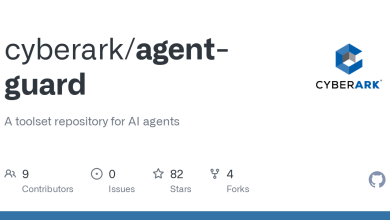Malaysia Faces Urgent Need to Address Cybersecurity Skills Gap, According to Fortinet’s SEA Senior Director
Fortinet addresses Malaysia’s cybersecurity workforce shortage, calling for urgent investment in training and AI-driven defences.

As Malaysia accelerates its digital transformation, the persistent cybersecurity skills gap presents a critical challenge for organisations across various sectors. In an exclusive interview with Peerapong Jongvibool, Senior Director of Fortinet Southeast Asia, he discusses the urgent need to close the cybersecurity skills gap and how businesses and policymakers can address this issue.
The Growing Cybersecurity Skills Shortage
The shortage of skilled cybersecurity professionals is a global concern, with Southeast Asia facing a particularly acute problem.
According to ISC2’s Cybersecurity Workforce Study, the cybersecurity talent gap has grown from 3.4 million in 2022 to an unexpected 4.8 million in 2024. Malaysia, like its regional counterparts, is grappling with a workforce that has not kept pace with the rising demand for cybersecurity expertise.

“Over 90% of organisations in Malaysia, Philippines, Singapore and Indonesia have reported security breaches that they attribute, at least in part, to a lack of skilled cybersecurity professionals,” said Peerapong.
Peerapong also went on to add that 84% of organisations in Malaysia and the Philippines, and 74% in Singapore and Indonesia, report difficulties in finding candidates with the necessary technology-focused certifications.
“These numbers highlight an urgent need to bridge the skills in the region, as organisations struggle to build robust cybersecurity defences,” Peerapong stressed.
Economic Impact and Talent Retention Challenges
Cyber threats have far-reaching economic consequences, affecting businesses of all sizes.
Peerapong cited Fortinet’s 2024 Cybersecurity Skills Gap Report, mentioning that up to 65% of organisations in Southeast Asia have faced significant financial losses due to cyber incidents, with 53% of global organisations reporting damages exceeding USD1 million from a single breach.
Peerapong warned that the long-term impact of cyber attacks extends beyond financial losses. “On average, organisations take 2.7 months to recover from a cyber attack. This downtime translates into lost productivity, operational disruptions, and reputational damage that can be difficult to repair.”
Beyond the economic aspects, many organisations also struggle to attract and retain skilled professionals. One major challenge is the limited availability of industry-aligned training and certification programs.
From an external source, Peerapong cited that Malaysia had only 16,765 cybersecurity personnel as of mid-2024, while the projected requirement stands at 26,430 by the end of 2025 and 28,068 by 2026.
“The Malaysia Cyber Security Academy, set to launch in 2025, is a step in the right direction,” said Peerapong. “By offering technical and vocational education and training (TVET) courses, we can help bridge the gap and equip more professionals with the skills needed to tackle cyber threats.”
AI’s Role in Cybersecurity

With these challenges, artificial intelligence (AI) and machine learning come into the picture, reshaping the cybersecurity landscape and providing advanced defence mechanisms.
AI-powered solutions are essential in helping organisations detect and respond to cyber threats faster,” Peerapong said. He then provided an example of Fortinet’s success via their automation tools, reducing attack detection times from a week to less than an hour, and response times from 2.5 days to just minutes.
However, cybercriminals are also leveraging AI to refine their attacks, as seen in multiple reports and analyses by various experts.
Peerapong is no stranger to this sentiment as well, saying, “Threat actors are using AI to craft highly targeted phishing campaigns, deepfake scams, and automated malware. This makes it more critical than ever for businesses to adopt AI-driven cybersecurity strategies.”
Fortinet’s Efforts to Bridge the Cybersecurity Skills Gap

To help address the talent shortage, Fortinet has been actively partnering with academic institutions across Southeast Asia to offer hands-on training and globally recognised certifications.
“In Malaysia, we have collaborated with Sunway University, University of Teknologi MARA (UiTM), and Universiti Sains Malaysia (USM) to equip students with practical cybersecurity skills,” Peerapong noted. These partnerships ensure that graduates are prepared to handle real-world cyber-threats from day one.”
Similar partnerships emerge across the region, including Gadjah Mada University (UGM), Multimedia Nusantara University (UMN), Swiss Germany University (SGU), and Sepuluh Nopember Institute of Technology (ITS) in Indonesia, and Singapore academic partners such as the Institute of Technical Education (ITE), Nanyang Polytechnic (NYP), Temasek Polytechnic (TP), and NTUC LearningHub.
These initiatives are designed to provide students with hands-on experience, industry insights, and globally recognised certifications.
Strengthening Malaysia’s Cybersecurity Framework

As Malaysia continues its digitalisation efforts, closing the cybersecurity skills gap is essential for national security and economic resilience. The National Cyber Security Bill 2024 introduces stricter security standards and licensing requirements, reflecting the government’s commitment to strengthening cyber defences.
However, Peerapong believes that a collaborative approach is required. “Government agencies, private enterprises, and academic institutions must work together to create a robust cybersecurity talent pipeline. Without a skilled workforce, businesses and critical infrastructure will remain vulnerable.”




